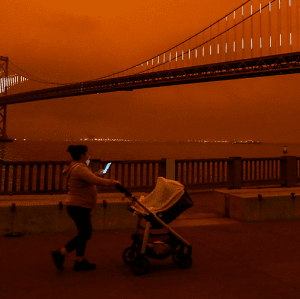Recent research highlights the severe health risks posed by wildfire smoke exposure during pregnancy, particularly for minority communities. Pregnant individuals are especially vulnerable due to physiological changes that increase their respiratory rate and cardiac output. The American Lung Association’s 2024 report estimates that over 700,000 pregnant people in the U.S. live in areas with high levels of particulate matter pollution, primarily from wildfires.
Wildfire smoke contains tiny particles that can penetrate deep into the lungs and enter the bloodstream, posing serious health risks. Pregnant women exposed to this pollution face heightened risks of miscarriage, preterm birth, and high blood pressure. Emerging studies indicate that these risks are disproportionately higher for minority communities, who often live in areas with poor air quality and limited access to healthcare.
Dr. Rupa Basu of the California Environmental Protection Agency has noted that Black mothers are up to 2.5 times more likely to experience preterm births compared to white women, partly due to living in areas with higher pollution levels. Similarly, Native American populations face elevated exposure to wildfire smoke, exacerbated by socioeconomic factors.
The impact of wildfire smoke on reproductive health is gaining attention, with researchers like Dr. Molly Kornfield and Amy Padula calling for more studies and equitable health interventions. These efforts aim to protect vulnerable populations and address the systemic inequities that amplify the health risks of wildfire smoke exposure.
See “The Risks of Wildfire Smoke Exposure During Pregnancy Are Becoming Clearer” (November 7, 2024)



